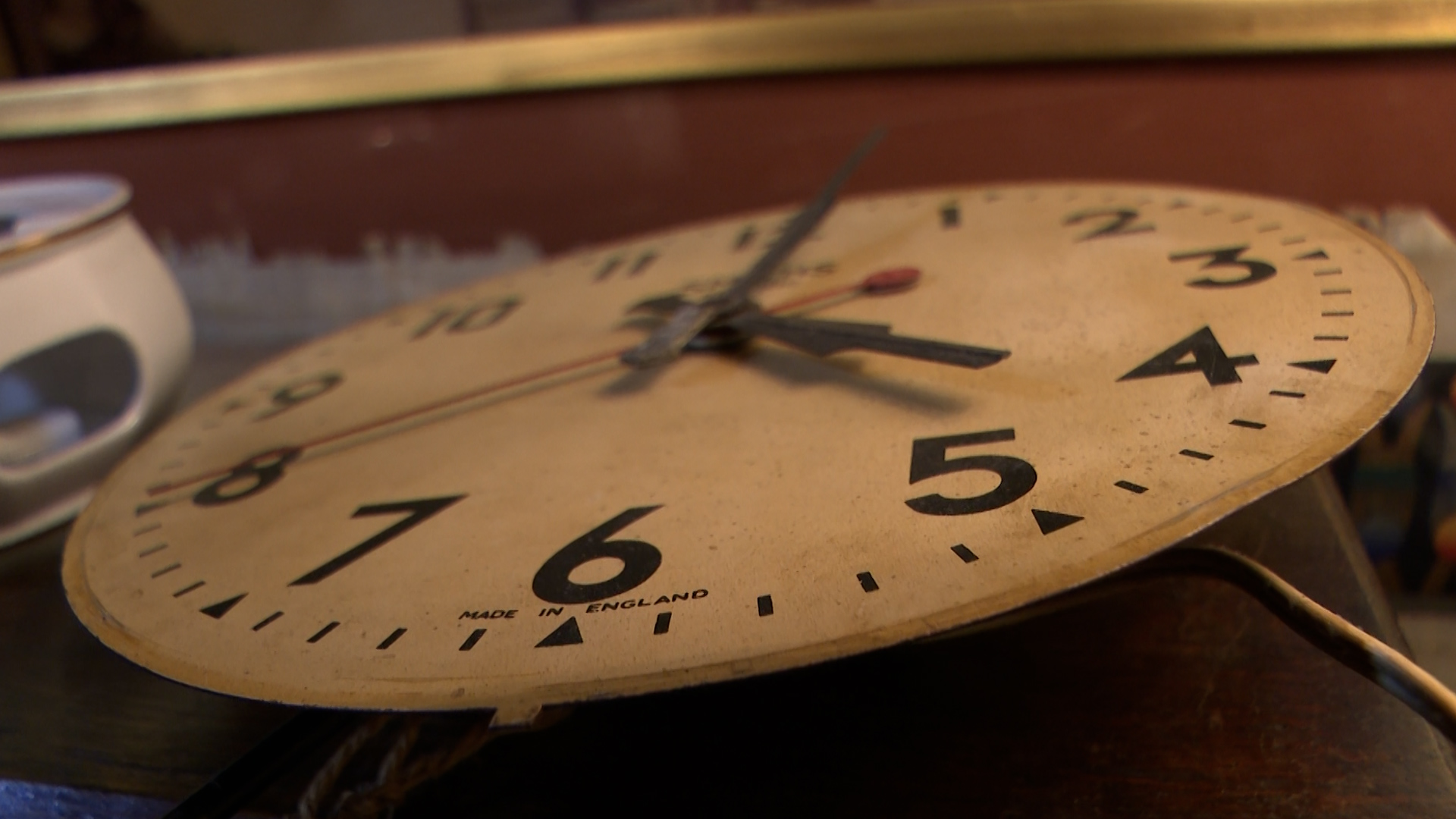02:30

Serge Baumans had just enough room to maneuver. Either side of the pathway to the grandfather clock in his antique shop along Brussels' famed Rue Blaes was filled. Weapons to the left. Jade carvings of Chinese monks to the right. Above, a chorus of crystal chandeliers, each one glowing.
He didn't normally set the time on the dozens of clocks and watches in the store, not even for daylight saving.
"It would be too much work to set the time," said Baumans, the Owner of Passage 125. "Some of them are set because they are electronic, so those ones are usually on time, but the other ones, we don't."
Baumans, along with hundreds of millions of other Europeans, may never have to change their clocks again, at least not for daylight saving. Last year, European legislators voted to ditch the bi-annual ritual and gave member states until the end of 2021 to decide whether they will stick to summer time or winter time permanently. If they choose winter, the clocks won't need to "spring" forward again in March.

Serge Baumans winds a pocket watch in his antique shop Passage 125 in Brussels
Serge Baumans winds a pocket watch in his antique shop Passage 125 in Brussels
The public has overwhelmingly supported the plan, which the European Commission first proposed in 2018. An online consultation received a record number of responses, with 84 percent of people in favor of putting an end to the practice.
Who will be first to pull the plug on daylight saving?
No country has adopted the change yet, although MEP Sean Kelly, who sits on the Working Group on the Bi-annual Clock Change, believes the Nordic countries, which have particularly dark winters due to their northern location, could be the first to take the leap.
"It may take someone to just say 'we're going to take the bull by the horns, we'll do it because it's in the best interest of our citizens' and that can get the clock moving for others," he said.
More than 70,000 citizens in Finland, which receives just 5.5 hours of sunlight in December, signed a petition calling for the practice to be abolished. But coordination across the bloc will be key. There are already three timezones in Europe and creating timezones within timezones could disrupt the single market.
Changing the clocks can lead to more heart attacks, strokes
The concept of changing the clock was first introduced in Germany during World War I and while other countries in Europe followed suit, daylight savings didn't become a fixture until the oil crisis of the 1970s.
"They wanted to save energy, but it's now actually costing energy because of the long winter evenings," said Kelly. "And especially now with the COIVD-19 lockdown coming, it's going to be even more depressing for people when they have to put the clocks back."
Studies have shown that changing the clocks, particularly moving ahead an hour from winter to summer time, can have temporary, yet serious health impacts besides lost sleep. A 2014 study in the United States showed moving the clocks ahead one hour heightened the risk of a heart attack the following day by 24 percent. Similarly, a study from Finland showed a greater risk of stroke in the days following a clock change.
Many sleep experts believe winter, with the extra hour of daylight in the morning, is better for our health because it is more in line with our internal clock.
"Having light in the morning might be quite important, especially for people who are vulnerable to seasonal affective disorder," said Christina Schmidt, a sleep expert at the University of Liege in Belgium. "It's the light in the morning which is resetting our internal clock and activating us to get up for the day."
The clock is ticking for member states to make a decision on a permanent time, but coronavirus and Brexit could delay the adoption. But with the hands already in motion, it's likely just a matter of time before daylight savings is a thing of the past.